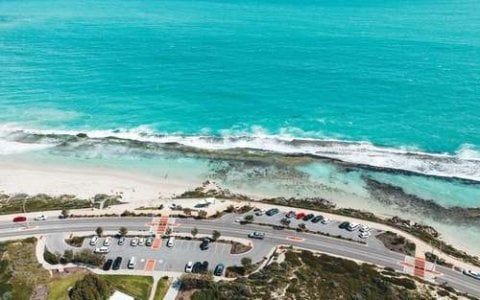This possible road rule overhaul may force you to change your driving habits ASAP!
By
Danielle F.
- Replies 152
Australia's road safety landscape is on the brink of a significant transformation.
With the number of road-related accidents on the rise, experts called for a national reassessment of how drivers move on the road.
This sparked a discussion about ensuring the safety of all road users.
According to experts, 2023 became the deadliest year on Australian roads in a decade.
The Northern Territory saw a 170 per cent increase in road deaths within a year.
In addition, The Northern Territory and Western Australia currently have the highest default speed limits at 110 km/h.
On the other hand, the rest of Australia has a default speed limit of 100 km/h.
These figures are not just numbers; they represent lives lost and families shattered.
With the alarming rise in road fatalities, the current default speed limits are under scrutiny.
The WA Centre for Road Safety Research, led by director Teresa Senserrick, has been advocating for reduced speed limits.
Senserrick highlighted the urgency of this issue, particularly in Western Australia.
She also emphasised the potential benefits of reduced speed limits nationwide.
Just in time for the state's road safety summit, Senserrick's message was clear: lowering speed limits will save lives.
'So when the country changed from miles per hour to kilometres per hour, all the states and territories rounded their default speed limit on rural roads to 100—except WA and the NT,' Senserrick explained.'
For reference, Tasmanian highways have lowered their speed limit to 90 km/h, and some have reduced to 80km/h.
She also pointed out that the default speed limits were set based on the 1970s standards.
However, with advancements in technology, increased population, and evolving road conditions, these speeds should be changed to prioritise the citizens' well-being.
The research-driven proposal indicated that a 10 km/h decrease in speed could reduce the risk of severe and fatal injuries by 28 per cent.
'It is about adapting to changes over time and saying that these speeds are no longer viable on the roads if we want to prioritise people's lives and well-being,' Senserrick stated.
Senserrick also drew parallels between the current speed debate and past attitudes towards drink-driving.
'Going back to the '70s and '80s, people did not generally believe that having several drinks and driving was risky,' she shared.
'That has now changed. People do agree that drinking too much is risky to drink and drive. We need to do the same approach with speed.'.
These changes on the road should promote safer roads in response to changing conditions
'Australia used to be in the top 10 of Organisation for Economic Co-operation and Development (OECD) countries in our roads' safety records; we were tracking to get into the top five and doing extremely well,' Senserrick shared.
'We now barely scrape into the top 20, and we are well below the average. We have got very, very far behind.'
All drivers must stay informed and prepared to adapt their driving habits.
The proposed changes are not just regulatory adjustments; they are life-saving measures that require the support and cooperation of drivers.

Do you have a story or opinion about road safety and speed limits? Share them with us in the comments section below.
With the number of road-related accidents on the rise, experts called for a national reassessment of how drivers move on the road.
This sparked a discussion about ensuring the safety of all road users.
According to experts, 2023 became the deadliest year on Australian roads in a decade.
The Northern Territory saw a 170 per cent increase in road deaths within a year.
In addition, The Northern Territory and Western Australia currently have the highest default speed limits at 110 km/h.
On the other hand, the rest of Australia has a default speed limit of 100 km/h.
These figures are not just numbers; they represent lives lost and families shattered.
With the alarming rise in road fatalities, the current default speed limits are under scrutiny.
The WA Centre for Road Safety Research, led by director Teresa Senserrick, has been advocating for reduced speed limits.
Senserrick highlighted the urgency of this issue, particularly in Western Australia.
She also emphasised the potential benefits of reduced speed limits nationwide.
Just in time for the state's road safety summit, Senserrick's message was clear: lowering speed limits will save lives.
'So when the country changed from miles per hour to kilometres per hour, all the states and territories rounded their default speed limit on rural roads to 100—except WA and the NT,' Senserrick explained.'
For reference, Tasmanian highways have lowered their speed limit to 90 km/h, and some have reduced to 80km/h.
She also pointed out that the default speed limits were set based on the 1970s standards.
However, with advancements in technology, increased population, and evolving road conditions, these speeds should be changed to prioritise the citizens' well-being.
The research-driven proposal indicated that a 10 km/h decrease in speed could reduce the risk of severe and fatal injuries by 28 per cent.
'It is about adapting to changes over time and saying that these speeds are no longer viable on the roads if we want to prioritise people's lives and well-being,' Senserrick stated.
Senserrick also drew parallels between the current speed debate and past attitudes towards drink-driving.
'Going back to the '70s and '80s, people did not generally believe that having several drinks and driving was risky,' she shared.
'That has now changed. People do agree that drinking too much is risky to drink and drive. We need to do the same approach with speed.'.
These changes on the road should promote safer roads in response to changing conditions
'Australia used to be in the top 10 of Organisation for Economic Co-operation and Development (OECD) countries in our roads' safety records; we were tracking to get into the top five and doing extremely well,' Senserrick shared.
'We now barely scrape into the top 20, and we are well below the average. We have got very, very far behind.'
All drivers must stay informed and prepared to adapt their driving habits.
The proposed changes are not just regulatory adjustments; they are life-saving measures that require the support and cooperation of drivers.
Key Takeaways
- Experts called for a reduction in the default speed limit on Australian roads to reduce road fatalities.
- Some regions, such as the Northern Territory and Western Australia, have default speed limits of 110 km/h, which are among the highest in the world.
- Road safety research suggested that lower speed limits could reduce the rates of severe crashes and deaths.
- Western Australia was urged to lead the way in lowering speed limits, with the potential for other states to follow suit to improve road safety.









